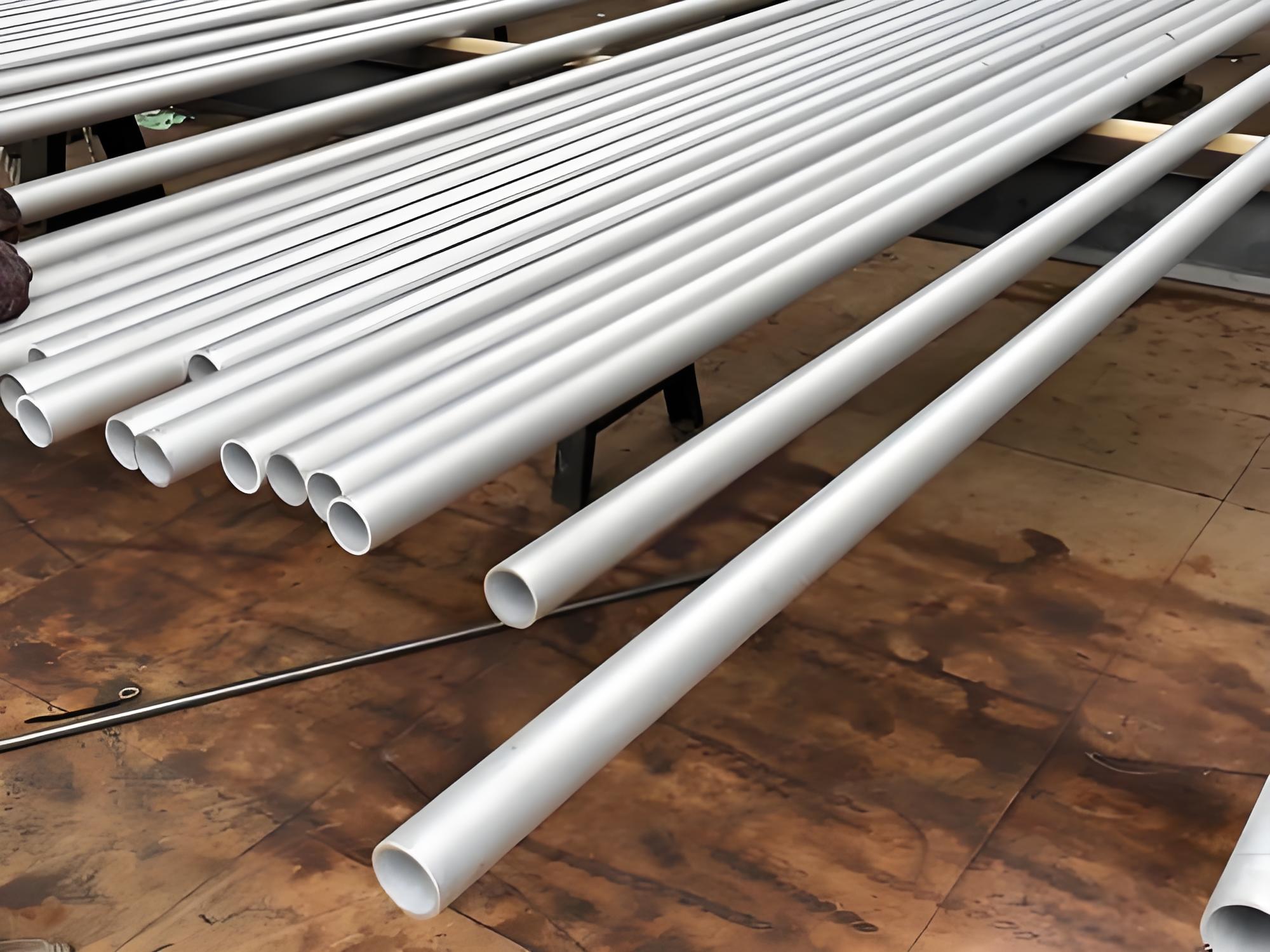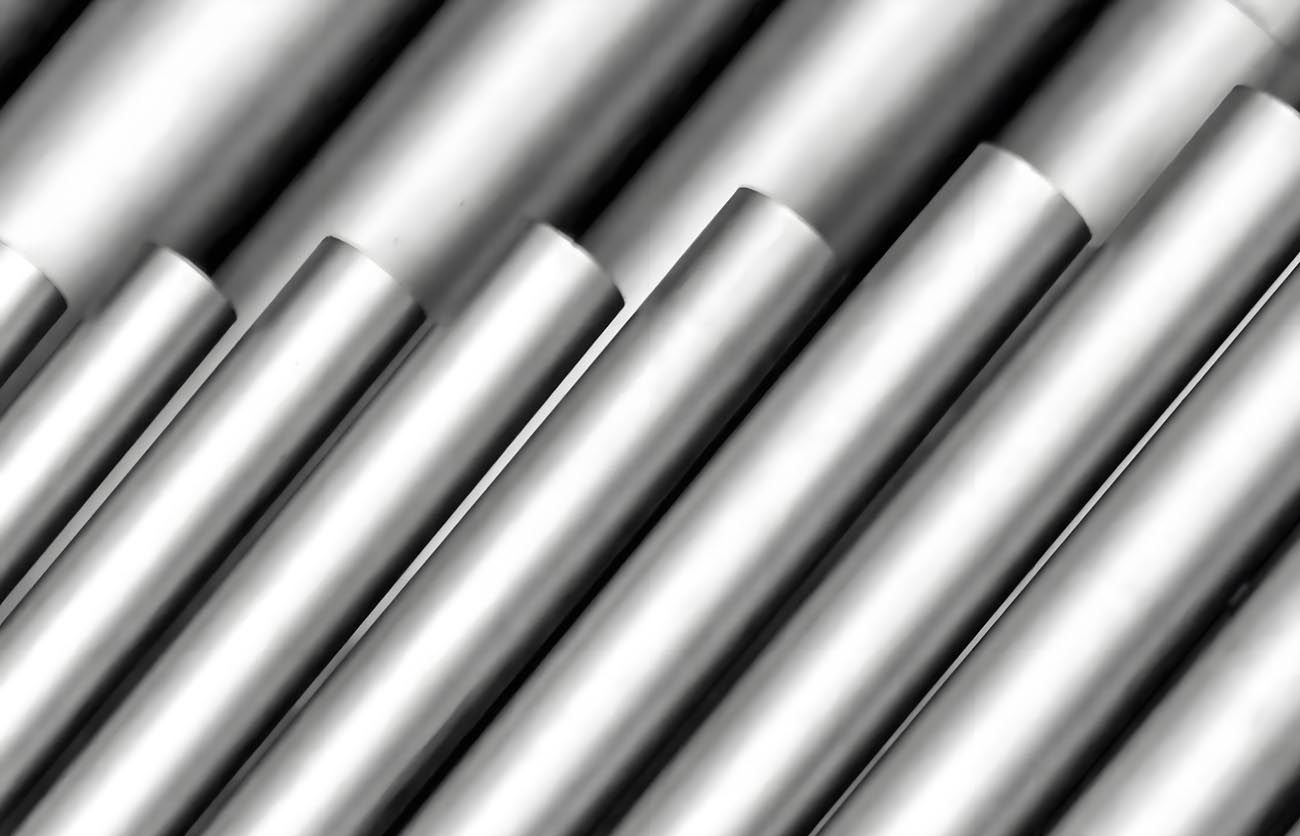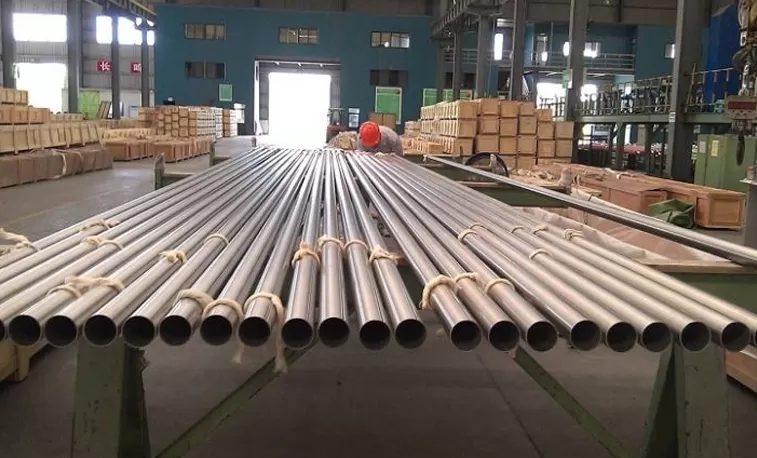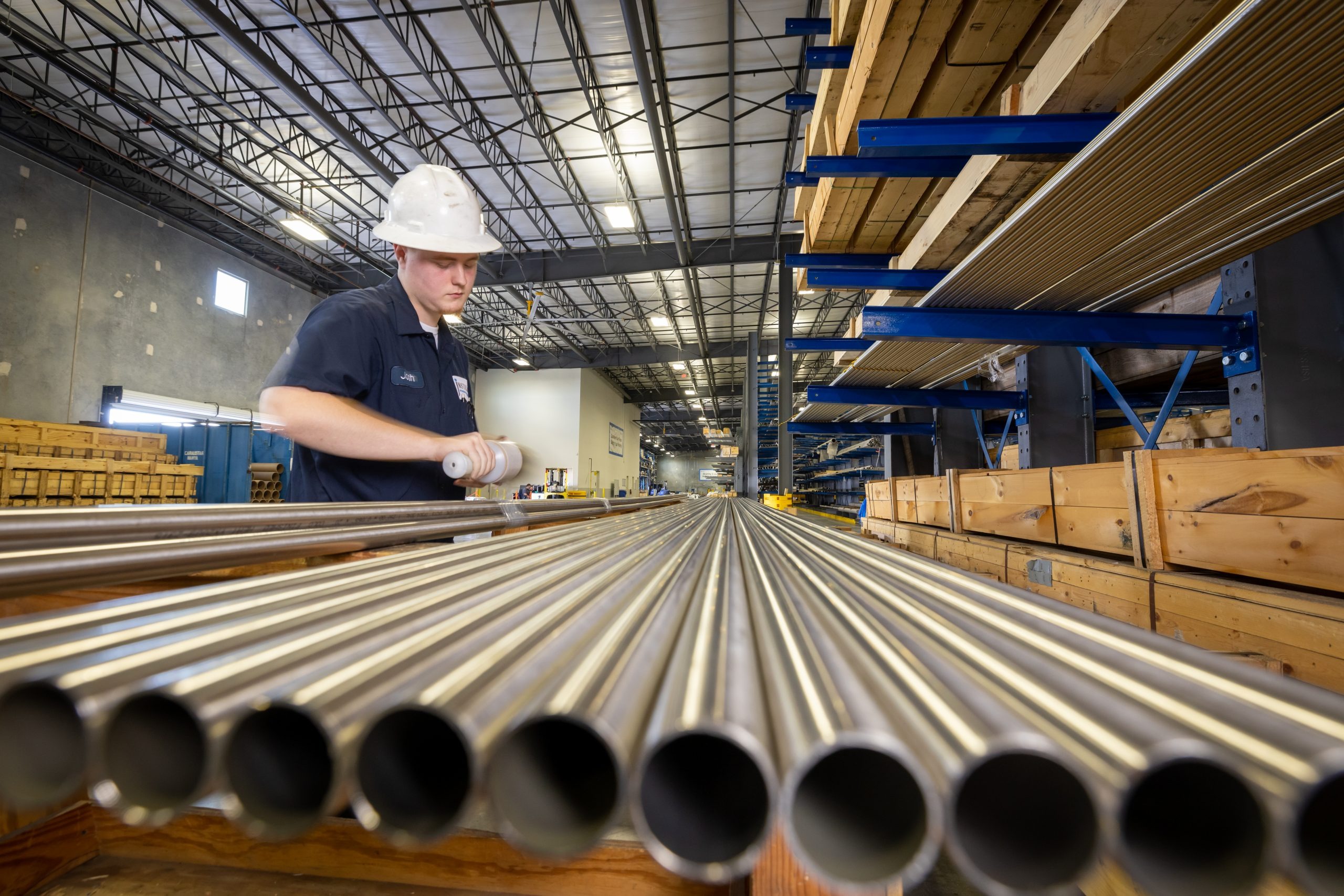Nickel 800, 800H, 800HT Alloy Steel Tube | UNS N08800/N08810/N08811
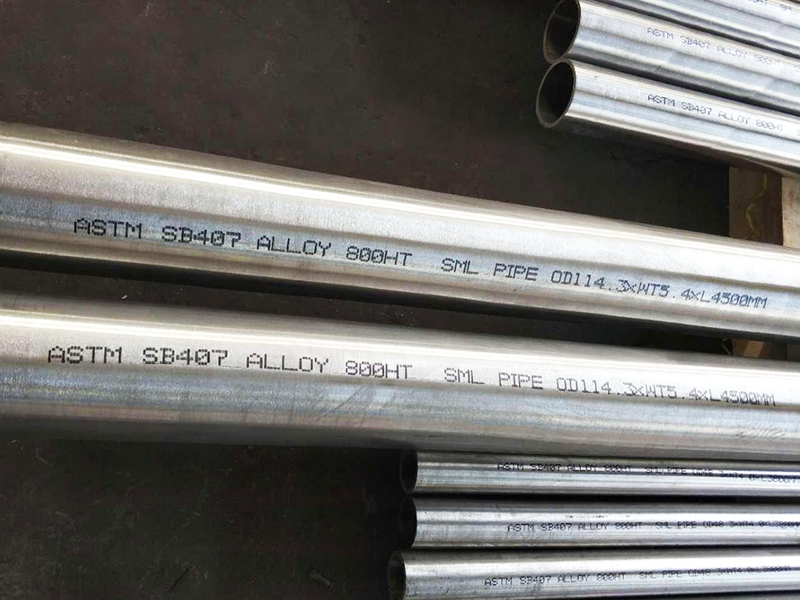
Nickel Alloy 800, 800H, and 800HT Steel Tube (UNS N08800/N08810/N08811)
Nickel Alloy 800, 800H, and 800HT are part of the Incoloy family of alloys, known for their exceptional strength and resistance to oxidation and carburization at high temperatures. These alloys are often used in applications requiring high-temperature stability and resistance to various forms of corrosion.
Chemical Composition
The chemical composition of these alloys is similar, with slight variations to enhance specific properties:
| Element | 800 (N08800) | 800H (N08810) | 800HT (N08811) |
|---|---|---|---|
| Nickel (Ni) | 30.0–35.0 | 30.0–35.0 | 30.0–35.0 |
| Chromium (Cr) | 19.0–23.0 | 19.0–23.0 | 19.0–23.0 |
| Iron (Fe) | 39.5 min | 39.5 min | 39.5 min |
| Carbon (C) | 0.10 max | 0.05–0.10 | 0.06–0.10 |
| Manganese (Mn) | 1.50 max | 1.50 max | 1.50 max |
| Silicon (Si) | 1.00 max | 1.00 max | 1.00 max |
| Copper (Cu) | 0.75 max | 0.75 max | 0.75 max |
| Aluminum (Al) | 0.15–0.60 | 0.15–0.60 | 0.15–0.60 |
| Titanium (Ti) | 0.15–0.60 | 0.15–0.60 | 0.15–0.60 |
| Sulfur (S) | 0.015 max | 0.015 max | 0.015 max |
Mechanical Properties
The mechanical properties vary slightly among the three alloys, with 800H and 800HT having higher creep and rupture strength due to higher carbon content and controlled grain size.
Alloy 800 (N08800)
- Tensile Strength: 450 MPa (65 ksi) min
- Yield Strength (0.2% offset): 170 MPa (25 ksi) min
- Elongation: 30% min
- Hardness: 150-200 HB
Alloy 800H (N08810) and 800HT (N08811)
- Tensile Strength: 450 MPa (65 ksi) min
- Yield Strength (0.2% offset): 170 MPa (25 ksi) min
- Elongation: 30% min
- Hardness: 150-200 HB
Physical Properties
- Density: 7.94 g/cm³ (0.287 lb/in³)
- Melting Range: 1357-1385°C (2475-2525°F)
- Specific Heat Capacity: 0.105 cal/g-°C (at 20°C)
- Thermal Conductivity: 11.2 W/m·K (at 20°C)
- Electrical Resistivity: 0.99 µΩ·m (at 20°C)
- Modulus of Elasticity: 196 GPa (at 20°C)
- Poisson’s Ratio: 0.33 (at 20°C)
Industries Predominantly Using These Grades
- Chemical Processing:
- Heat exchangers
- Reactor vessels
- Piping systems
- Petrochemical and Refining:
- Furnace components
- Transfer piping systems
- Power Generation:
- Steam generators
- Superheater and reheater tubing
- Nuclear Power:
- Reactor core components
- Heat exchangers
Typical Manufacturing Specifications
- ASTM B163: Specification for Seamless Nickel and Nickel Alloy Condenser and Heat-Exchanger Tubes
- ASTM B407: Specification for Nickel-Iron-Chromium Alloy Seamless Pipe and Tube
- ASTM B514: Specification for Welded Nickel-Iron-Chromium Alloy Pipe
- ASME SB163/SB407/SB514: Standards for nickel alloy seamless and welded pipe and tube
Available Tube Product Forms
- Seamless Tubing
- Welded Tubing
- Straight Lengths
- Coiled Tubing
Typical Applications
- Chemical Processing:
- Heat exchangers, reaction vessels, and piping systems used in harsh chemical environments.
- Petrochemical and Refining:
- Furnace components, transfer piping, and heat exchangers that operate in high-temperature environments.
- Power Generation:
- Steam generator tubing, superheater and reheater tubing in fossil fuel and nuclear power plants.
- Nuclear Power:
- Reactor core components, heat exchangers, and other critical components that require high strength and resistance to oxidation and carburization.
Welding and Fabrication Characteristics
Welding
- Weldability:
- Nickel Alloy 800, 800H, and 800HT can be welded using common methods such as Gas Tungsten Arc Welding (GTAW/TIG), Gas Metal Arc Welding (GMAW/MIG), and Shielded Metal Arc Welding (SMAW).
- Filler Metals: Typically, ERNiCr-3 or ERNiCrMo-3 filler metals are used for GTAW and GMAW processes, while ENiCrFe-2 is suitable for SMAW.
- Preheating and Post-Weld Heat Treatment (PWHT):
- Preheating: Generally not required, but cleanliness is crucial to prevent contamination.
- PWHT: Post-weld heat treatment is often recommended for 800H and 800HT to relieve stresses and stabilize the structure. This is typically done at temperatures between 870°C and 980°C (1600°F and 1800°F).
- Weld Defects and How to Avoid Them:
- Porosity: Ensure a clean work environment and appropriate shielding gases to minimize porosity.
- Cracking: Control welding parameters to avoid solidification cracking, especially in thick sections.
Fabrication
- Machining:
- General: Nickel Alloy 800 series alloys are relatively challenging to machine due to their high strength and work hardening properties. Using carbide tools, low cutting speeds, and high feed rates can improve machinability.
- Coolants: Liberal use of cutting fluids is recommended to cool and lubricate during machining, enhancing tool life and surface finish.
- Forming:
- Cold Forming: These alloys can be cold-formed using standard techniques. Due to their high work hardening rate, intermediate annealing may be necessary for extensive deformation.
- Hot Forming: Hot forming is usually performed at temperatures between 1150°C and 1230°C (2100°F and 2250°F). Appropriate temperature control is vital to avoid cracking and ensure uniform material properties.
- Heat Treatments:
- Solution Annealing: Typically performed at 980°C to 1050°C (1800°F to 1925°F), followed by rapid cooling to achieve a homogeneous microstructure.
- Stress Relief: Stress relief annealing can be performed to reduce residual stresses from welding or forming operations.
- Surface Cleaning:
- Pickling: Use a solution of nitric and hydrofluoric acids to remove oxides and scale formed during welding or heat treatment.
- Mechanical Cleaning: Grinding and brushing can also be used, but care should be taken to avoid contamination with iron particles, which can lead to corrosion.
Best Practices for Welding and Fabrication
- Cleanliness: Maintaining a clean work environment is crucial. Contaminants such as sulfur, phosphorus, lead, and zinc can lead to weld defects and corrosion issues.
- Tooling: Use dedicated tools for Nickel Alloy 800 series to avoid cross-contamination from other metals.
- Controlled Environment: If possible, perform welding and fabrication in a controlled environment to minimize the introduction of impurities.
- Training: Ensure that welders and fabricators are specifically trained for handling high-nickel alloys to achieve the best results.
Conclusion
Nickel Alloy 800, 800H, and 800HT (UNS N08800/N08810/N08811) offer excellent strength and resistance to oxidation and carburization at high temperatures, making them suitable for demanding industrial applications. By adhering to best practices and understanding the specific requirements of these alloys, engineers and fabricators can ensure high-quality results and reliable performance in various environments, including chemical processing, petrochemical and refining, power generation, and nuclear power industries.

